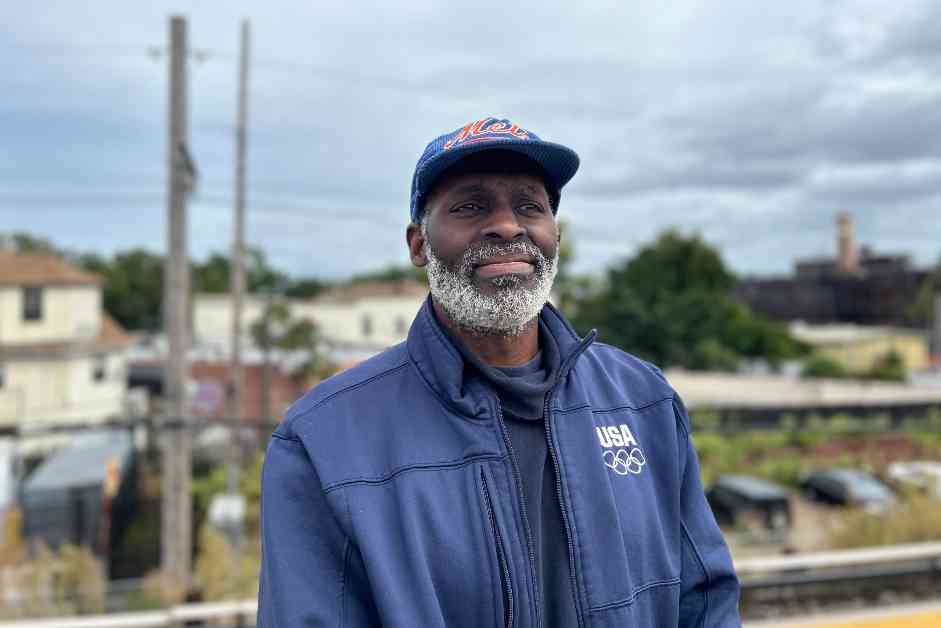**Eric Adams’ Popularity and Ongoing Investigations: A Look at New Yorkers’ Perspectives**
Amidst swirling federal investigations and the departure of key aides, Mayor Eric Adams has been steadfast in his stance, declaring, “I’m stepping up, not stepping down.” He has emphasized that New Yorkers are more concerned about the results he delivers rather than the investigations surrounding him. However, recent conversations with residents in Black voter hubs such as Harlem, Edenwald, and St. Albans reveal a mixed reaction to Adams’ leadership.
In Harlem, East Harlem resident Darryl Williamson expressed his concerns about corruption and the need for accountability in government. Williamson, who voted for Adams in the last mayoral race, now feels disappointed in the mayor’s performance, particularly in terms of investing in essential services like schools, drug treatment programs, and housing. He emphasized the importance of elected officials prioritizing the needs of the people and called for a change in leadership.
Similarly, in Edenwald, Alice Penrose voiced her dissatisfaction with Mayor Adams, citing her struggles to make ends meet despite receiving minimal assistance. Penrose highlighted the disparity in benefits received by residents like herself compared to newly arrived migrants, raising questions about the mayor’s priorities and the distribution of resources. She expressed her intention to vote against Adams in the upcoming election, emphasizing the need for a leader who addresses the pressing issues faced by New Yorkers.
On the other hand, there are residents like George Friscoberry in Central Harlem who commend Adams for his efforts to improve community-police relations and address public safety concerns. Friscoberry praised the mayor for fostering a more positive interaction between law enforcement and residents, dispelling the notion of police as adversaries. His sentiments were echoed by George Perch, who emphasized the positive changes he has witnessed under Adams’ administration, particularly in the treatment of Black communities by law enforcement.
Meanwhile, in Queens, Mercedes, a retired hospital telecommunications employee, expressed her unwavering support for Mayor Adams, dismissing the ongoing investigations as irrelevant to his performance. Mercedes credited Adams for his dedication to the city and his commitment to serving the people, affirming her willingness to vote for him again in the future. Similarly, Tom Loyd, a lifelong resident of St. Albans, acknowledged the imperfections of the mayor but commended him for the progress made under his leadership, highlighting the positive impact of Adams’ initiatives.
**Challenges and Criticisms**
Despite varying opinions on Mayor Adams’ performance, there are underlying concerns and criticisms that cannot be ignored. Residents like Williamson and Penrose have raised valid points about the need for greater transparency, accountability, and equitable resource allocation in the city government. Their frustrations reflect broader issues of inequality, lack of access to essential services, and perceived neglect of marginalized communities.
Moreover, the ongoing investigations into the Adams administration have cast a shadow over his leadership, prompting questions about ethical conduct, integrity, and public trust. While some residents choose to focus on the mayor’s accomplishments and the positive changes they have observed, others are troubled by the allegations of misconduct and the potential implications for the city’s governance.
**Looking Ahead: The Future of Mayor Adams’ Administration**
As Mayor Eric Adams navigates the challenges and controversies surrounding his administration, it is crucial for him to address the concerns raised by residents and prioritize transparency, accountability, and community engagement. Building trust with the people of New York City requires more than just rhetoric; it demands concrete actions, responsive governance, and a commitment to serving the public good.
Moving forward, Mayor Adams must heed the voices of all New Yorkers, especially those who feel marginalized or neglected by current policies and practices. By actively listening to the concerns of constituents, fostering dialogue, and implementing inclusive, equitable solutions, Adams can demonstrate his dedication to representing the diverse interests of the city and upholding the values of integrity, fairness, and justice.
In conclusion, the mixed reactions to Mayor Eric Adams’ leadership reflect the complex realities of governance in a diverse, dynamic city like New York. While some residents applaud his efforts to improve public safety and foster community-police relations, others raise valid criticisms about the distribution of resources, accountability, and ethical conduct. As Mayor Adams continues to navigate these challenges, it is essential for him to prioritize the needs of all New Yorkers, address the underlying issues of inequality and injustice, and work towards building a more inclusive, responsive government that serves the interests of the people.

